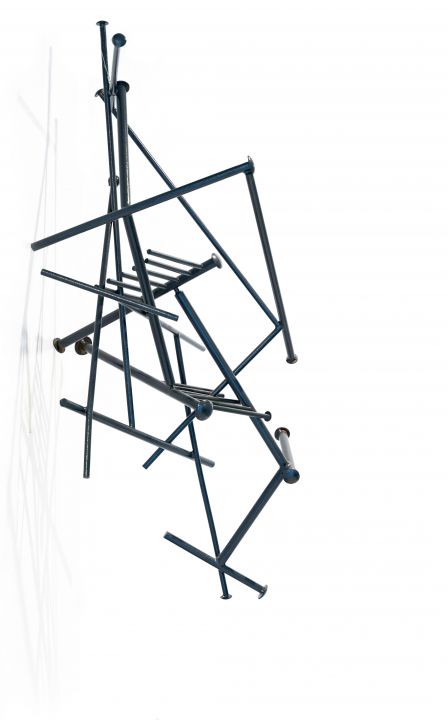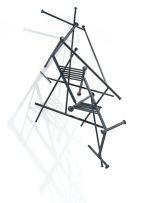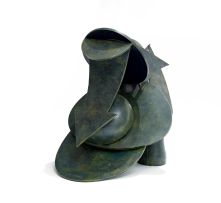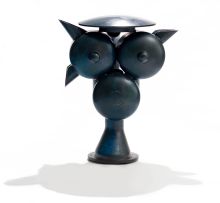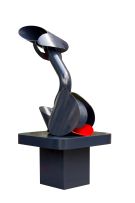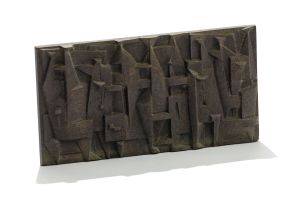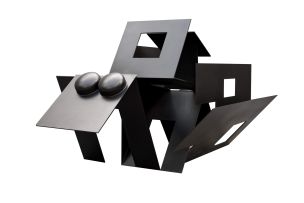Modern, Post-War and Contemporary Art
Live Auction, 20 May 2019
Evening Sale
About this Item
Notes
Villa was particularly interested in the Cubism of Picasso, which opened up almost infinite new possibilities for the treatment of visual reality in art. 'Cubism broke up closed sculptural volume into multiple planes, each suggesting a different three-dimensional view of the same object, but now dislocated in space and time.'1 With this sculpture, Villa picks up on the characteristic exploded views associated with Cubist analysis, the complex relationships between form, space and time. Black Rhombus I, with its three-dimensional complex grid and extended rods capped with black dots, shows different viewpoints at the same time, thereby creating a three-dimensional form. The structure floats in space and functions in a way quite different from the artist's usual earth-bound works which confirm gravity.
1. Monty Sack and Karel Nel (2005) 'Villa, Johannesburg and the Modernist Context', in Karel Nel, Elizabeth Burroughs and Amalie von Maltitz (eds), Villa at 90, Johannesburg: Jonathan Ball with Shelf Publishing. Page 150.
Literature
Karel Nel, Elizabeth Burroughs and Amalie von Maltitz (eds) (2005) Villa at 90, Johannesburg: Jonathan Ball with Shelf Publishing. Illustrated in black and white on page 50 in the background of a photograph of the artist with Lucas Legodi.
